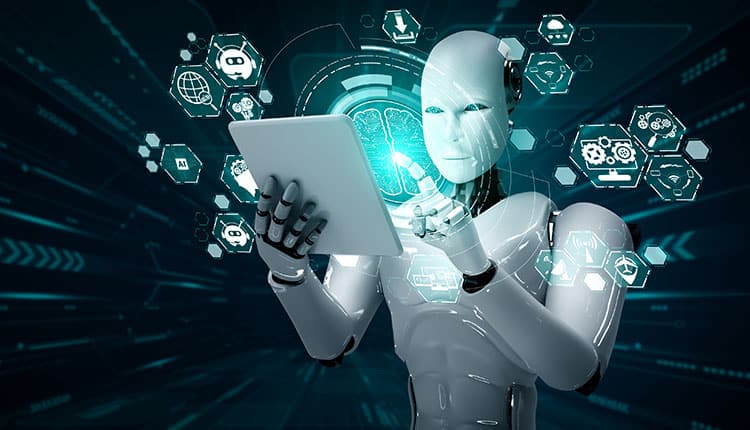By Dr Debashis Guha, Director, MAIB and Chair, CRTIB, Director, Master of Artificial Intelligence In Business Chair, Centre for Research on Technology In Business, S P Jain School of Global Management
The advent of new Artificial Intelligence tools (AI), especially the launch of Large Language Models (LLM) such as ChatGPT, Bard, Claude and others, has had a massive impact on academia. This impact ranges all the way from dismay, resentment, and even panic, to great hope and optimism.
Academia’s first reaction to ChatGPT was one of dismay. Wharton Professor Ethan Mollick, a leading observer of the phenomenon, has written:
Not enough educators (and parents) are preparing for the Homework Apocalypse that is coming this Fall, as AI becomes ubiquitous among students.
Essays are ubiquitous in education, where they serve many purposes, from demonstrating how students think to providing an opportunity for reflection. But they are also really easy for any Large Language Model to generate…
Reacting to readings is another extremely common assignment. … AI, however, is very good at summarizing and applying information. And it can now read PDFs. Or even entire books.
Problem sets are a very useful assignment type, but one that is also under threat. AI does incredibly well on tests, and is getting better with each new model.
Mollick concludes that virtually all modes of homework now in use, from writing essays, book summaries, and case-study discussions to solving quizzes and problem sets, will become obsolete, much like how long multiplication or division had to be discontinued as homework assignments after the arrival of electronic calculators in the 1970s. As Generative AI becomes more powerful, it may be capable of executing even more complex assignments such as entire science or technology projects, and student assignments using these tools will also have to be abandoned.
Many teachers and education leaders, both at the high school and the university levels, initially resisted the implications of these developments and attempted to deal with the rise of AI by ignoring it, banning it, or embracing only its most facile aspects. However, the realisation has now started to sink in that AI and LLMs have changed the nature of the game in such a profound way that the entire landscape of academia will need to be re-configured, like the way industrial design and layout had to be completely re-imagined in order to incorporate the introduction of cheap electrical power in the late nineteenth and early twentieth centuries.
The modern classroom education system, a Western invention, is founded on a mass-production paradigm. Pre-industrial societies used a very different education system whose principal goal was the preparation and training of elites. In this classical system the teacher and the student worked closely together for long periods, and all learning and assessment took place in a deeply personalised setting. This is the system we find all over the world in the pre-industrial era, not only in Eastern systems such as the Indian guru-shishya parampara or the various sensei-deshi modes of East Asia, but also at medieval European universities such as the ones in Bologna, Padua, or Oxford. In contrast, the modern system is based on one-to-many lectures for teaching and mass-administered assignments for testing. Like many other mass-production innovations, this was a product of the industrial era meant to fulfil the needs of an industrial society.
The goal was no longer elite preparation but the training of large masses of people to become industrial workers. The new mass education system proved to be quite good at this. It taught children the limited knowledge necessary to function as a factory worker. Even more importantly, it inculcated the social skills to function effectively in a Taylorist factory. These skills include high tolerance for boring work and repetition, a knack for rote learning, and the suppression of all creative impulses. It is not hard to recognise that the resultant dullness of mind and lack of creativity found among the “educated” is not a bug but a feature of this system.
The classical methods survive even today at some elite bastions such as Oxford and Cambridge where they still use the tutor method. It is also used everywhere for very advanced subjects such as doctoral research. However, classroom instruction has become the de facto standard not only for high schools but also for college and even post-graduate teaching.
The mass-education model is no longer suited to the needs of a post-industrial society which demands advanced knowledge and creativity from its workers. It is not an accident that the most celebrated and creative industrial leaders of the current era come from the ranks of “college dropouts”. Generative AI will make it possible for us to dispense with our obsolete mass education systems and replace them with classical-style teaching and assessment methods combined with massively scaled-up access methods enabled by AI. This change will be an essential ingredient in the world’s transition to a post-industrial era.
We are at the dawn of a revolution. Mass education, with its boring lectures, its tedious homework assignments, and its accident-prone examinations, has outlived its usefulness and it will be replaced in its entirety by AI-enabled systems that combine the strengths of classical methods with the huge scale-up made possible by technology.



